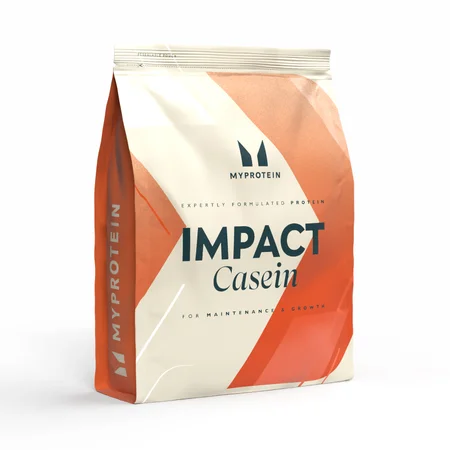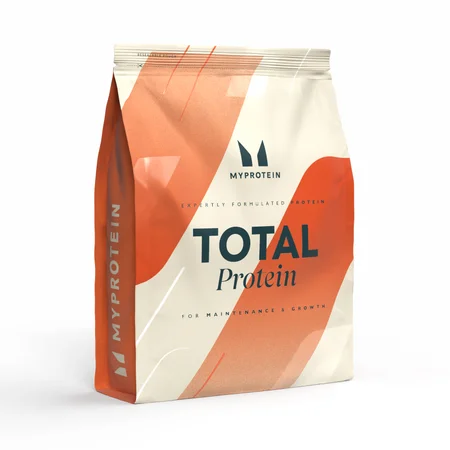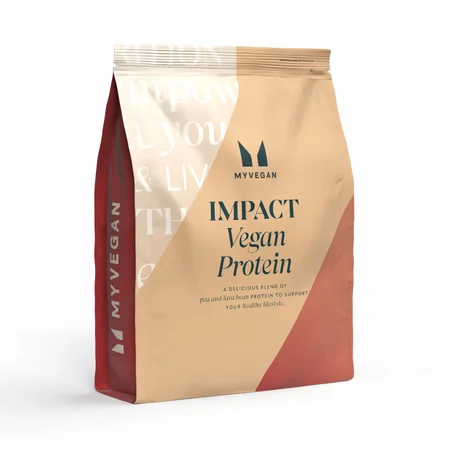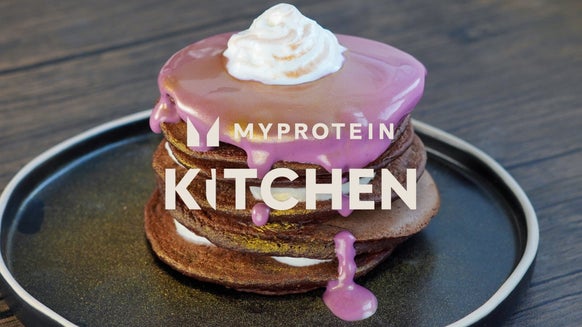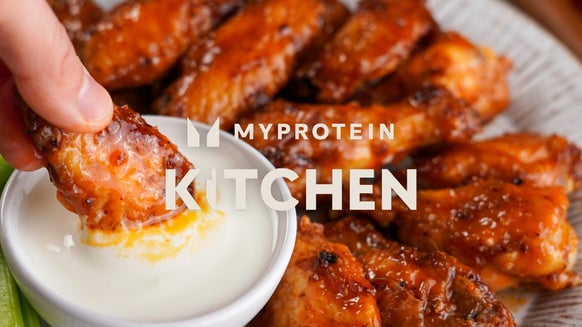Benefits Of Protein Shakes Before Bed
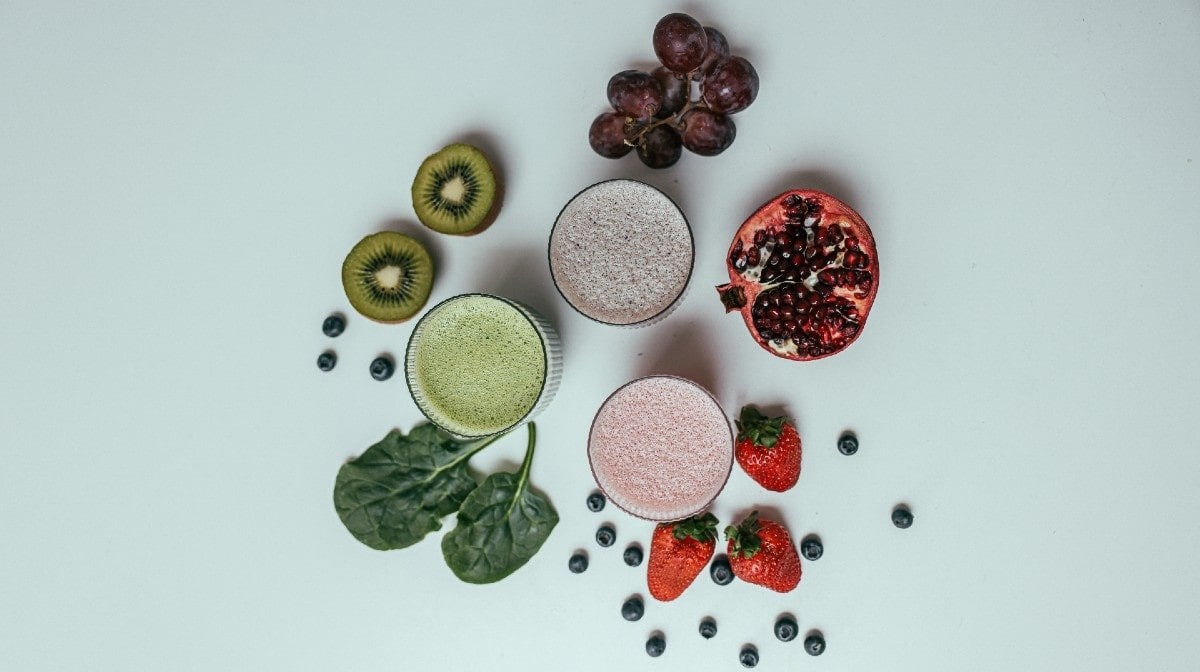
You may have had a glass of milk before bed as a kid to build strong bones, but did you ever think that a night-time drink may also be useful for better gym gains? Here, we take a look at the evidence surrounding protein shakes before bed, discuss the potential benefits of consuming protein before bed, and provide some practical guidelines to avoid any potential pitfalls.
- Benefits of protein before bed.
- Which protein to have before bed.
- Recommended bedtime protein shakes.
- Bedtime protein recipe.
- FAQs

Benefits of Protein Before Bed
1. Weight Loss
Protein is the main nutrient that stimulates the growth of new muscle tissue; it also helps to protect your hard-earned muscle mass during weight loss.10 However, the power of protein doesn’t stop there, as research shows that protein intake before you hit the hay can boost metabolism (the process of converting food into energy) and help keep hunger pangs at bay.
Protein intake also keeps us feeling full and may help to reduce those late-night, high-calorie cravings that can be damaging to weight loss success.2
2. Muscle Growth
While many people train in the evening and consume protein in the post-workout period, how many of us consider protein shakes before bed? This is especially important given that the stimulation of muscle growth is typically low when you sleep, and so you may be at risk of muscle protein breakdown throughout the night.3,15
Luckily, researchers have shown that your gut is still able to function normally throughout the night while you sleep, which means you can still properly digest and absorb any protein consumed before bed.5
This gives you a clear opportunity to stimulate muscle growth as you sleep — by slurping down protein shakes before bed. So how much do you need? Researchers have shown that 40g casein protein before bed stimulates muscle protein synthesis (the process of building muscle mass) by around 20%.12
3. Sleep
Sleep is generally recognised as an important recovery tool and a constant lack of sleep may result in changes to performance, immunity and protein absorption.6 Although more research in this area is required, we currently know that consuming a high-protein diet may improve overall sleep quality.7
On top of this, the intake of protein prior to sleep may increase the availability of the amino acid L-tryptophan. When consumed with carbohydrates, tryptophan uptake into the brain is increased and may improve the time taken to fall asleep, as well as overall sleep quality.6

Which protein to consume before bed
There are three primary types of protein you might use before bed - whey, casein, or plant-based options. Both whey and casein proteins are made from milk, but have different amino acid profiles.
Whey protein digests quickly and is shown to be the most effective at building muscle, which is why it is so commonly used after a workout. It also contains more branched chain amino acids (BCAAs), essential for muscle building and recovery.8
Casein protein is made from milk solids. This means it takes longer for our body to digest and break down, but it releases protein more slowly into our system over time. It is especially high in leucine.
Plant-based protein powders may or may not be complete proteins — meaning they do not contain all of the amino acids. Choosing a plant-based protein blend can help maximise the amino acids that you can benefit from.
Most of the available research to date supports the use of casein protein, although the differences between casein, whey, and soy are very small. The theory behind the use of casein protein is that it provides a more sustained release of amino acids (because it takes the body longer to digest) and so maintains amino acid availability throughout the night.4
If you’ve just finished your workout in the evening, whey might be the best choice for quick recovery; if it’s a rest day or you just want a bedtime protein dose, casein may be a better fit due to its slow digestion.
Despite this, more research is needed to provide clear guidelines on the best form of protein to take before bed. For now, we should keep in mind that most studies listed above commonly use doses between 40-50g protein. It may be that the dosage is a more important consideration than the type of protein being consumed.
Myprotein’s recommended bedtime protein shakes
Overnight Recovery Blend
Overnight Recovery Blend is a slow-release protein blend that contains five different proteins: whey, micellar casein, milk isolate and egg white protein. There’s evidence to suggest combining whey and casein can have the best effect on muscle protein synthesis as whey helps to spike levels quickly while casein helps prolong it.17
Protein blends in general are a good option before bed. A further advantage to this blend is the added zinc and magnesium, which have both been shown to have the potential to enhance recovery from exercise and improve sleep quality.18,19
Slow-Release Casein
Casein is a protein that is digested slowly, meaning the amino acids enter the blood stream in a slow, sustained way. This results in muscle protein synthesis rates being elevated for a longer period, preventing muscle protein breakdown rates from exceeding synthesis rates.5
This slow digestion makes it a good choice before bed as it may help to prevent a net loss of muscle during an overnight fast.16 Another benefit of Slow-Release Casein is that it’s also suitable for vegetarians.
Slow-Release Casein Elite
If you’re a professional athlete or competing in sports at any level, Slow-Release Casein Elite is the pre-bed shake option for you as it’s been batch tested for banned substances by Informed-Sport.
If you’re competing professionally, it’s crucial that the supplements you take are tested properly. Looking for options tested by Informed-Sport is the best way to do this.
Milk Protein Powder
Milk is nature’s own protein blend, containing a mix of whey and casein. The milk protein powder used in this product is ultra-filtered skimmed milk, meaning it contains only 106 calories.
This makes it a great pre-bed option for those following an energy-restricted diet as it may help you preserve muscle while losing weight.
Total Protein Blend
Total Protein Blend contains a mix of seven different protein powders. This means the powder has an excellent amino acid profile allowing you to build and preserve muscle. The combination of proteins makes it a great shake regardless of the time of day, and the mixed digestion rates mean it’s also a good option before bed.
Vegan Protein Blend
The Vegan Protein Blend is made up of Pea Protein Isolate and Fava Bean Isolate. Pea protein has a similar digestibility as casein, making it a good alternative pre-bed option for those following a vegan diet.20
Bedtime protein recipe suggestion
Protein plays a role in stimulating the synthesis of new muscle and next-day metabolism, and tryptophan in the production of improved sleep quality and melatonin (the hormone that regulates the sleep–wake cycle).
So it makes sense that our pre-sleep shake should contain both protein and tryptophan.(13) Dairy products such as milk and yoghurt provide a mix of both whey and casein. It also contains tryptophan, which can be found in pumpkin and sunflower seeds.
This pre-sleep shake recipe combines all of the key compounds to cover all bases.
150g fat-free strained Greek yoghurt 20g protein powder - 2 tbsp. pumpkin seeds
- 1 cup mixed berries
Milk or water for desired thickness
Food protein sources for before bed
If you need to eat a meal before bed, you might prefer to get your protein from whole food sources rather than from a protein shake. Choose from the below list of high protein food sources if you’re choosing whole foods over a shake.
- Eggs
- Low fat dairy (milk, cottage cheese, yogurt)
- Chicken breast
- Tuna
- Lean red meat
- Tofu
- Edamame
Take home message
Having protein shakes before bed provides a key opportunity to stimulate muscle growth, influence daily energy metabolism, and improve overall sleep quality. Furthermore, when consumed regularly, pre-sleep protein promotes gains in both muscle mass and strength. Whilst the optimal type of protein required before bed remains unclear, a dose of between 40-50g may be necessary to achieve the benefits outlined in this article.
FAQs
Should I have a protein shake before bed?
Taking a protein shake before bed has benefits including stimulating muscle growth and improving sleep quality.
What type of protein should I take before bed?
Most research supports that casein is the best protein to take at night, due to its more sustained release of amino acids, maintaining protein bioavailability throughout the night.
How can protein before bed help weight loss?
Taking protein before bed has been found to increase your metabolism the following day. Protein also takes more energy to breakdown, compared to carbohydrates.
How can protein before bed help muscle growth?
Taking protein before bed takes your muscles from a negative protein balance throughout the night to a positive protein balance, allowing your muscles to recover and build overnight.
Can taking protein before bed improve sleep quality?
Taking protein before bed may increase the availability of the amino acid L-tryptophan, which has been shown to improve sleep quality.
READ THESE NEXT:

Your Alkaline Foods Guide | Why You Don’t Need the Alkaline Diet
Find out why these fruits and veggies are so important.

What Is The 5:2 Diet? How To Lose Weight Safely
Is it really sustainable?

Vegan Bulking Meal Plan & Tips
Get your greens and make gains all at once.

Liam is a certified sport nutritionist with the International Society of Sport Nutrition and is enrolled on the British Dietetics Association’s Sport and Exercise Nutrition register. He has a Bachelor’s of Science in Sport and Exercise Science and is graduate of the ISSN Diploma in Applied Sport and Exercise Nutrition.
Liam is an experienced personal trainer, helping clients reach their health and fitness goals with practical, evidence informed exercise and nutrition advice. In his spare time Liam has competed in numerous powerlifting competitions and enjoys hill walking, football and expanding his recipe repertoire in the kitchen.Find out more about Liam's experience here.
1. Acheson KJ, Blondel-lubranoA,Oguey-araymon S, Beaumont M, Emady-azar S, Nielsen-moennoz C, Bovetto L, Ammon-zufferey C, Monnard I. Protein choices targeting thermogenesis and metabolism. Am J Clin Nutr 93: 525–534, 2011.
2. Anderson GH, Moore SE. Dietary Proteins in the Regulation of Food Intakeand Body Weight in Humans. JNutr 134: 974–979, 2004.
3. Beelen M,TielandM, Gijsen AP, Vandereyt H, Kies AK, Kuipers H, Saris WHM, Loon LJC Van. Coingestion of Carbohydrate and Protein Hydrolysate Stimulates Muscle Protein Synthesis during Exercise in Young Men, with No Further Increase during Subsequent Overnight Recovery. J Nutr 138: 2198–2204, 2008.
4. BoirieY, Dangin M, Gachon P, Vasson M-P, Maubois J-L, Beaufrere B. Slow and fast dietary proteins differently modulate postprandial protein accretion. Proc Natl Acad Sci 94: 14930–14935, 1997.
5. Groen BBL, Res PT, Pennings B, Hertle E, Senden JMG, SarisWHM, Loon LJC Van. Intragastric protein administration stimulates overnightmuscle protein synthesis in elderly men. Am J Physiol Endocrinol Metab 302: 52–60, 2019.
6. HalsonSL. Sleep in Elite Athletes and Nutritional Interventions to Enhance Sleep. Sport Med44: 13–23, 2014.
7. Lindseth G, Lindseth P, Thompson M, Forks G. Nutritional Effects onSleep. West JNurs Res 35: 497–513, 2017.
8. Madzima TA, Melanson JT, Black JR,NepocatychS. Pre-Sleep Consumption of Casein and Whey Protein: Effects on Morning Metabolism and Resistance Exercise Performance in Active Women. Nutrients (2018). doi: 10.3390/nu10091273.
9. Madzima TA, Panton LB,FrettiSK, Kinsey AW, Ormsbee MJ. Night-time consumption of protein or carbohydrate results in increased morning resting energy expenditure in active college-aged men. Br J Nutr 111: 71–77, 2014.
10. Mettler S, Mitchell N, Tipton KD. Increased Protein Intake Reduces LeanBody Mass Loss during Weight Loss in Athletes. Med Sci SportExerc : 326–337, 2010.
11. Ormsbee MJ, Gorman KA, Miller EA, Baur DA, Eckel LA, ContrerasRJ, Panton LB, Spicer MT.Nighttime feeding likely alters morning metabolism but not exercise performance in female athletes. Appl Physiol Nutr Metab 727: 719–727, 2016.
12. Res PT, Groen B, Pennings B, Beelen M, Wallis GA,GijsenAP, Senden JMG, Loon LUCJCVAN. Protein Ingestion before Sleep Improves Postexercise Overnight Recovery. Med Sci Sport Exerc 44: 1560–1569, 2012.
13. Silber BY, Schmitt JAJ. Effects of tryptophan loading on human cognition,mood, and sleep.Neurosci Biobehav Rev 34: 387–407, 2010.
Snijders T, Res PT, Smeets JSJ, Vliet S Van, Kranenburg J Van, MaaseK, Kies AK,Verdijk LB, Loon LJC Van. Protein Ingestion before Sleep Increases Muscle Mass and Strength Gains during Prolonged Resistance-Type Exercise Training in Healthy Young Men. J Nutr : 1178–1184, 2015.
TrommelenJ, Loon LJC Van. Pre-Sleep Protein Ingestion to Improve the Skeletal Muscle Adaptive Response to Exercise Training. Nutrients 28: E763, 2016.
Paul LG. (2009). The Rationale for Consuming Protein Blends in Sports Nutrition. TheJournal of the American College of Nutrition. 2013. 28:sup4 464S-472S.
CherasseY, Urade Y. Dietary Zinc Acts as a Sleep Modulator. Int J Mol Sci. 2017;18(11):2334. Published 2017 Nov 5. doi:10.3390/ijms18112334
Cao Y, Zhen S, Taylor AW, Appleton S, Atlantis E, Shi Z. Magnesium Intake and SleepDisorder Symptoms: Findings from the Jiangsu Nutrition Study of Chinese Adults at Five-YearFollow-Up. Nutrients. 2018;10(10):1354. Published 2018 Sep 21. doi:10.3390/nu10101354
BerrazagaI, Micard V, Gueugneau M, Walrand S. The Role of the Anabolic Properties of Plant- versus Animal-Based Protein Sources in Supporting Muscle Mass Maintenance: A Critical Review. Nutrients. 2019;11(8):1825. Published 2019 Aug 7. doi:10.3390/nu11081825
